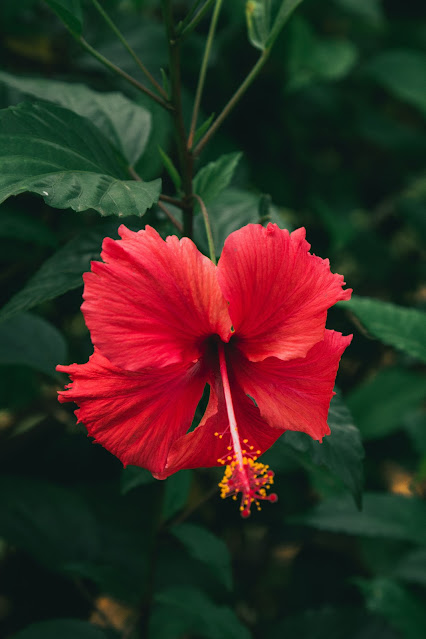The Beauty and Benefits of the Hibiscus Plant
Introduction
Hibiscus, with its vibrant, trumpet-shaped flowers, is not only a delightful addition to gardens and landscapes but also a treasure trove of health and beauty benefits. This stunning plant, known scientifically as Hibiscus rosa-sinensis, has been revered for centuries in various cultures for its versatility and therapeutic properties. In this article, we will explore the numerous benefits of the hibiscus plant, from its role in herbal medicine to its contributions to skin and hair care.
1. Rich in Antioxidants
Hibiscus is a rich source of antioxidants, which play a crucial role in protecting the body from oxidative stress and free radical damage. Antioxidants help neutralize harmful molecules in the body, reducing the risk of chronic diseases and aging. Hibiscus contains vitamin C, beta-carotene, and other flavonoids that contribute to its potent antioxidant properties.
2. Blood Pressure Regulation
Several studies have suggested that hibiscus tea can help lower blood pressure. It contains compounds that act as natural ACE inhibitors, which relax blood vessels and promote better circulation. Regular consumption of hibiscus tea may be beneficial for individuals with hypertension and contribute to heart health.
3. Weight Management
Hibiscus tea is often recommended as part of a weight management strategy. It has diuretic properties that can help flush excess water weight and reduce bloating. Additionally, it may help regulate appetite and prevent overeating, making it a useful component of a balanced diet.
4. Immune System Support
The high vitamin C content in hibiscus contributes to its immune-boosting effects. Vitamin C helps the body produce white blood cells, strengthens the immune system, and defends against common illnesses like colds and the flu. Drinking hibiscus tea or incorporating hibiscus into your diet can be a tasty way to support your immune system.
5. Skin Health
Hibiscus is an essential ingredient in many skincare products due to its skin-loving properties. It contains natural alpha hydroxy acids (AHAs) that exfoliate the skin, removing dead cells and promoting a more youthful complexion. Hibiscus extracts are also known to help improve skin elasticity, reduce wrinkles, and promote a natural glow.
6. Hair Care
Hibiscus is often hailed as a secret ingredient for strong and healthy hair. It contains amino acids, vitamins, and minerals that nourish hair follicles, promote growth, and prevent hair fall. Hibiscus oil or infused hair products can help strengthen hair, reduce dandruff, and add shine.
7. Digestive Health
Hibiscus tea is considered a mild laxative and is often used to relieve constipation. It aids in digestion by relaxing the stomach muscles and promoting smoother bowel movements. Drinking hibiscus tea after meals may alleviate digestive discomfort.
8. Menstrual Pain Relief
For many women, hibiscus tea has proven to be a natural remedy for menstrual cramps and discomfort. Its muscle-relaxing properties can help ease uterine contractions and reduce pain during menstruation.
Conclusion
The hibiscus plant is truly a botanical marvel, offering a wide range of benefits for health, beauty, and overall well-being. From its antioxidant-rich properties to its role in heart health, skin care, and even menstrual pain relief, hibiscus has earned its place as a valuable natural resource. Whether enjoyed as a refreshing tea, incorporated into skincare routines, or used in herbal remedies, the hibiscus plant continues to captivate and enhance our lives in numerous ways. Embracing the beauty and benefits of hibiscus is not only a nod to nature's gifts but also a step towards a healthier and more vibrant you.

